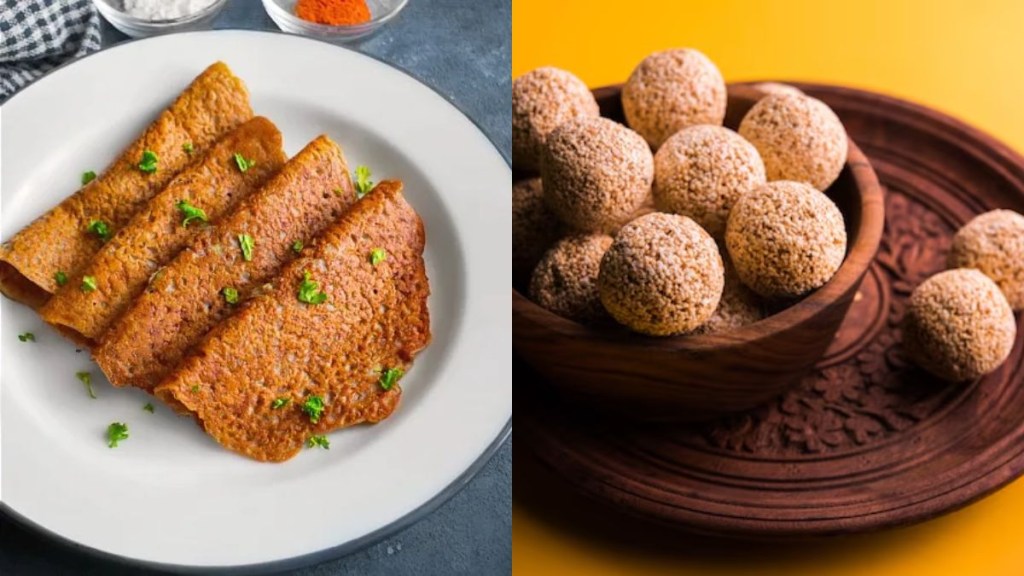Navratri is not just a festival which is observed for nine days but it’s also a time for self-discipline and mindful eating. Over these nine auspicious days, many devotees fast and stick to a sattvic diet, avoiding heavy or processed foods. However, during these nine days, some devotees experience fatigue or dizziness due to fasting. Hence, it is important that fasting should be practiced in a way that makes sure the body does not suffer from starvation and receives proper nutrients, especially protein, to stay active and healthy.
So, which protein-rich foods should you include in your Navratri fasting diet to stay full, healthy, and energetic? The Financial Express spoke to Dt. Deepali Sharma, Clinical Nutritionist at CK Birla Hospital, Delhi, who shares tips for a balanced, protein-rich fasting diet.
Dairy proteins
According to Sharma, you must include yogurt to your Navratri fasting diet. “Yogurt is one of the most convenient foods during fasting. Not only is it high in protein, but it also acts as a natural enzyme, aiding digestion.” She adds, “Paneer or cottage cheese is another excellent protein source. It can be added to curries with vrat-friendly vegetables, mixed into samak rice pulao, or simply grilled as a healthy snack. Buttermilk and lassi should also be taken as they provide protein while cooling the digestive system and keeping the gut light.”
Nuts and seeds for protein and healthy fats
Sharma suggests including seeds like pumpkin and sunflower seeds, which are rich in magnesium, protein, and antioxidants. “You can roast them as a crunchy snack or add them to yogurt for a nutritional boost. Walnuts and almonds are also great as they provide protein and healthy fats, keeping you full for longer. They can be eaten raw, added to desserts, or even mixed with sabudana for taste and nutrition,” she says.
Healthy cereals and flours
While regular cereals are usually avoided during Navratri, some grains are excellent sources of protein. Sharma explains, “Buckwheat flour (kuttu atta) can be made into rotis, cheelas, or pancakes. Rajgira (amaranth) is another protein-rich grain, packed with iron and calcium, which can be prepared as porridges, laddoos, or energy bars with dry fruits and natural sweeteners.”
Other Navratri fasting foods
Fox nuts (makhana) and sago (sabudana) are also popular during Navratri. Sharma notes, “Makhana is light, crisp, and can be roasted as a snack or added to curries and kheer. Sabudana, being mostly carbohydrate, can be combined with peanuts or yogurt to prepare healthy dishes like khichdi, vadas, or payasam.”
With the right combination of dairy, seeds, nuts, and fasting-friendly grains, devotees can maintain a protein-rich Navratri diet that keeps them full, energetic, and healthy. Sharma further shares that, “Proper planning makes fasting not just a religious practice, but also a truly healthy one.” Hence, you must add these foods to your Navratri diet as it can keep fatigue and dizziness at bay.
